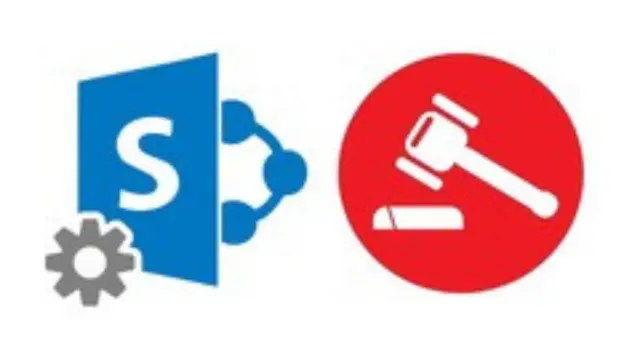
Implementing eDiscovery in SharePoint: The Complete Course
Learn how to implement eDiscovery in SharePoint from scratch using hand-on tutorials
ClayDesk
Summary
- Reed Courses Certificate of Completion - Free
Add to basket or enquire
Overview
"Implementing eDiscovery in SharePoint: The Complete Course" is a comprehensive training program designed to equip individuals and organizations with the knowledge and skills necessary to effectively utilize eDiscovery capabilities within the SharePoint platform. This course covers all aspects of eDiscovery implementation, from understanding the fundamentals of eDiscovery to practical hands-on training in setting up and managing eDiscovery cases in SharePoint.
The course begins by providing a solid foundation in eDiscovery concepts, including legal requirements, preservation obligations, and the role of technology in the eDiscovery process. Participants will gain a clear understanding of how SharePoint can serve as a powerful tool for managing and conducting eDiscovery activities.
Throughout the course, participants will learn step-by-step techniques for configuring SharePoint to support eDiscovery workflows. They will explore the various features and functionalities available within SharePoint, such as legal holds, content searches, and case management. Practical exercises and real-world scenarios will allow participants to apply their knowledge and develop proficiency in leveraging SharePoint for eDiscovery purposes.
Curriculum
Course media
Description
Legal professionals are now facing a tremendous game changer - the prolific use of technology- which has created an enormous knowledge gap in the legal field. Electronic discovery (eDiscovery), the process of identifying and producing relevant, Electronically Stored Information (ESI) for legal cases has created a technical quagmire in law.
Master SharePoint, Exchange, and Office 365 and learn how to use these to create, implement, and manage eDiscovery Center. In order to excel in the 21st century dynamic legal landscape, you must understand the basics of electronic discovery, coupled with use of technology.
The Cowen Group, in its recently published Ninth Annual Salary Study for compensation and hiring trends, identified eDiscovery as an area with one of the (highest paying non-attorney jobs (averages between $60 - $300k)
In this course, you will learn how to use:
-
Office 365
-
SharePoint 2013 Server
-
Exchange 2013 Server
-
eDiscovery Center
-
Electronic Data Reference Model (EDRM), and more
Who should take this course?
This course is available to people who wish to enter into the multi-billion dollar eDiscovery market, and I have designed this course to be easily understood by:
-
Absolute beginners
-
Non-attorneys
-
Litigation support professional
-
Paralegals
-
Attorneys
-
Entry level and experienced IT professionals
-
Executives and
-
Anyone who wants a career boost
This course is available to people who wish to enter into the multi-billion dollar eDiscovery market, attorneys, paralegals, litigation support professionals, case managers, consultants, project managers, legal support providers and other legal professionals.
What are the requirements?
-
Familiarity with Microsoft Office Suite
What's in it for me?
-
Instant career boost
-
Earning a 'six figure' salary within a few years
-
Understand cloud computing as an added benefit by using Office 365
-
Become confident with SharePoint and Exchange 2013
-
Create, implement, configure, and manage eDiscovery Centers
-
Create Records Management Center
-
Create and Manage Data Loss Prevention (DLP) policies
-
Become confident working with Compliance Center
Thank you
Syed and Team ClayDesk
Who is this course for?
- The course is designed for students who wish to enter the eDiscovery market. Whether you are a student, practicing attorney, paralegal, legal assistants, IT professional, or project manager, this course allows for using current technology efficiently within the realm of eDiscovery.
- Basic knowledge of Microsoft Office is required
Requirements
-
You only require an internet browser (Chrome, Internet Explorer, Safari, etc.) to take this course.
Questions and answers
Currently there are no Q&As for this course. Be the first to ask a question.
Certificates
Reed Courses Certificate of Completion
Digital certificate - Included
Will be downloadable when all lectures have been completed.
Reviews
Currently there are no reviews for this course. Be the first to leave a review.
Legal information
This course is advertised on reed.co.uk by the Course Provider, whose terms and conditions apply. Purchases are made directly from the Course Provider, and as such, content and materials are supplied by the Course Provider directly. Reed is acting as agent and not reseller in relation to this course. Reed's only responsibility is to facilitate your payment for the course. It is your responsibility to review and agree to the Course Provider's terms and conditions and satisfy yourself as to the suitability of the course you intend to purchase. Reed will not have any responsibility for the content of the course and/or associated materials.


